Ask any kid what their favourite part of science is, and they’ll probably tell you it’s blowing stuff up. Unfortunately, for most younger students, these sort of experiments only come up occasionally in school. So, a chemistry set is a great gift to a young person’s curiosity and love of science.
Of course, there are some kids who are less interested in chemistry and more enthusiastic about space, engineering or the natural world, and there are plenty of great science kits out there for them, too.
We’ve put together a list of our favourite chemistry sets and science kits for curious kids, whatever their interests.
More science gifts for kids:
- 5 of the best microscopes for kids in 2024
- 7 of the best coding toys for kids
- Best science toys: top picks for the bored and the curious
- Best educational toys: 10 smart play kits for children
Best science kits and chemistry sets for kids
Galt Toys Science Lab (ages 6+)
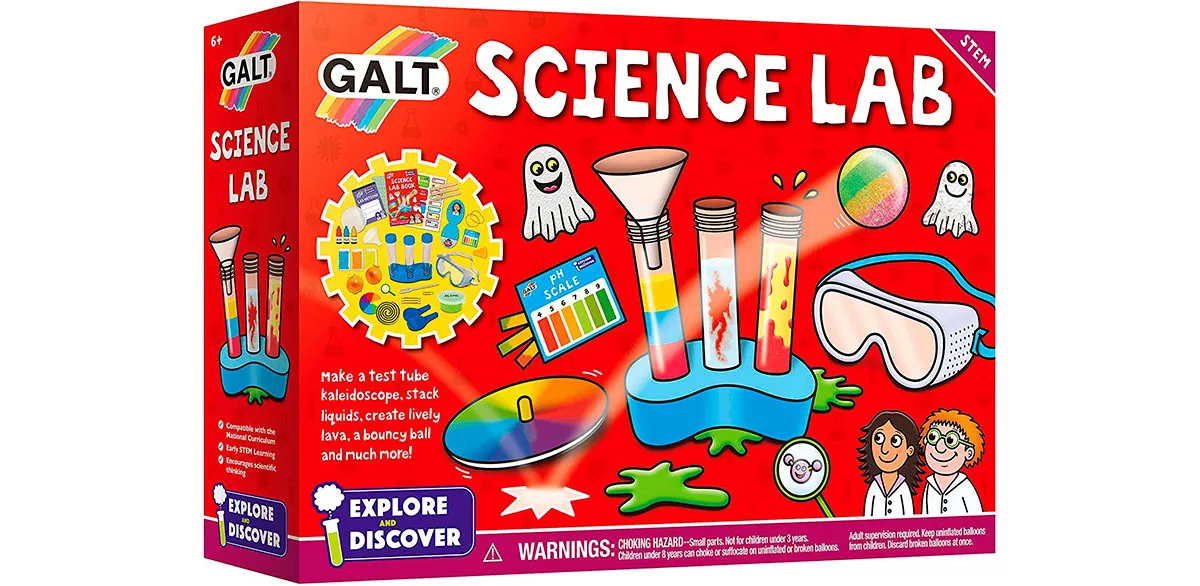
This chemistry set is a great starter kit for younger science enthusiasts from age 6 upwards. A 32-page lab book explains how to perform 20 different experiments, from making their own bouncy ball to creating a test tube kaleidoscope.
Inside the box, you’ll find all the equipment you need, from goggles and test tubes to slime, food colouring and a magnifying glass. There’s also a lab notepad to write down the results of your experiments. To quote Mythbusters’ Adam Savage: “The only difference between screwing around and science is writing it down.”
Kids First: Plant Science Kit (ages 5-7)
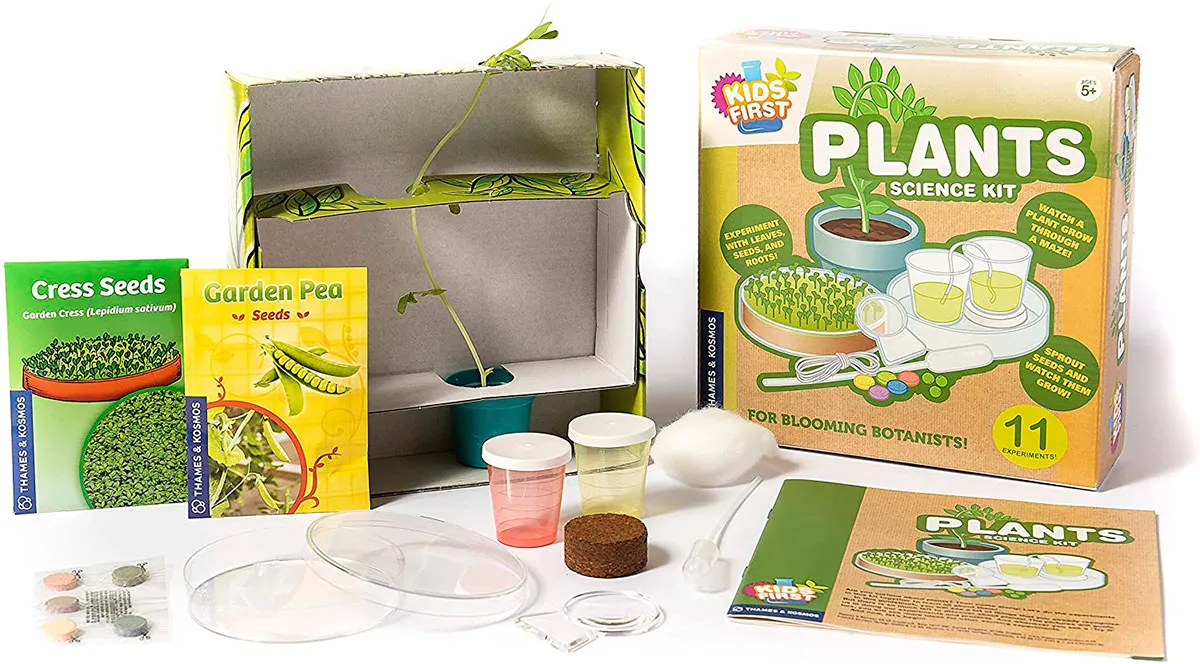
All kids are curious about nature from a young age. Unfortunately, more and more children have very little contact with the natural world, and end up losing this curiosity. You can help them to keep hold of it with this Plants Science Kit from Thames & Kosmos.
The 20-page guide book contains illustrated step-by-step instructions for 11 different experiments, all on the subject of plants. As well as planting seeds and watching them grow, kids can experiment with changing the colours of flowers, watching a plant grow through a maze, and more.
NASA Motorised Solar System Construction Kit (ages 8+)
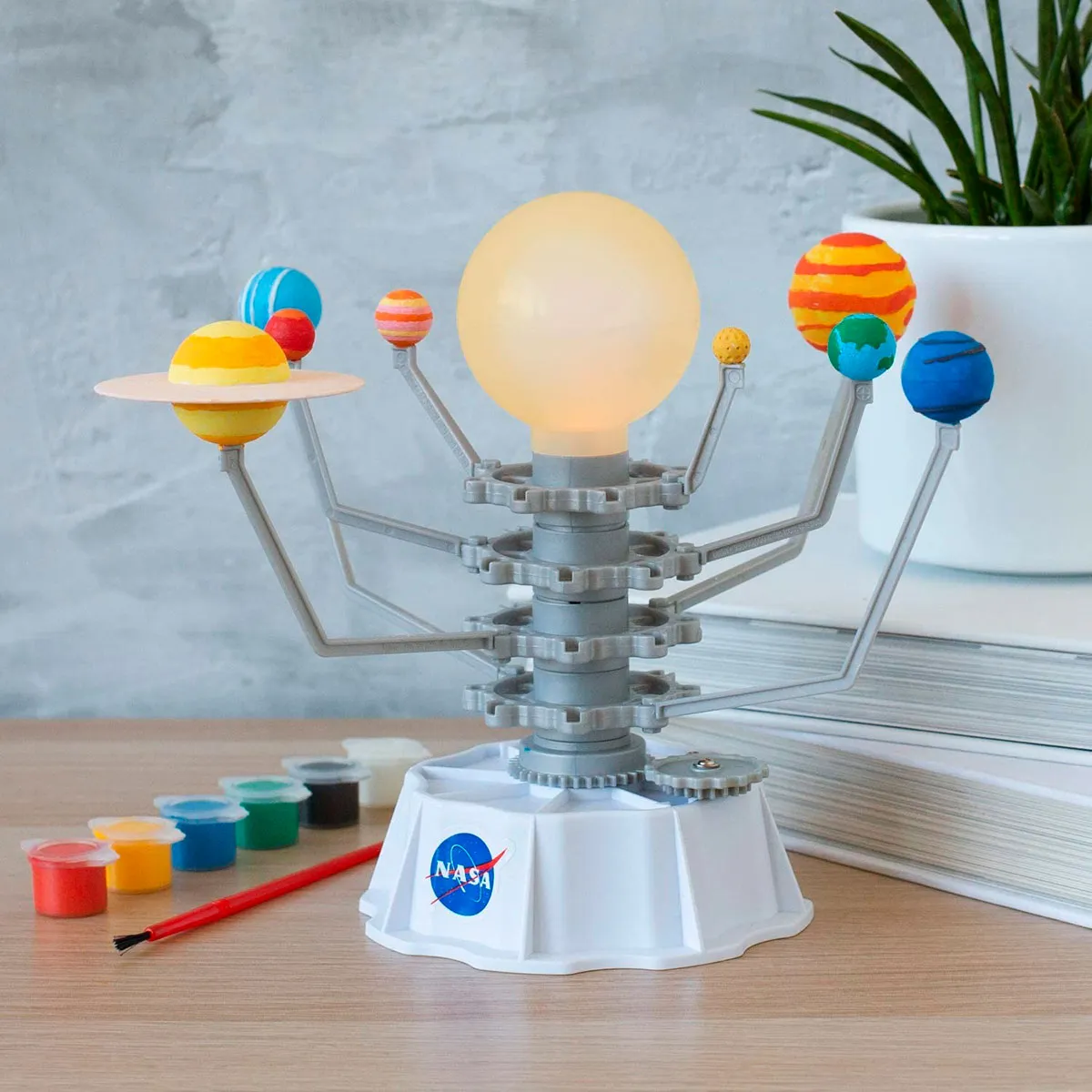
After making stuff blow up, one of the science subjects that grabs most kids’ attention is space. With this science kit from NASA, wannabe astronomers can construct and paint their own model of the Solar System. They can learn about each of the planets as they paint them, and once the model is built, the Sun will light up and you can turn the motor to watch the whole Solar System revolve.
It comes with paint and a brush, but you’ll need to provide a small crosshead screwdriver, two AAA batteries, scissors and a paint mixing tray.
Thames & Kosmos Electricity and Magnetism Kit (ages 8+)
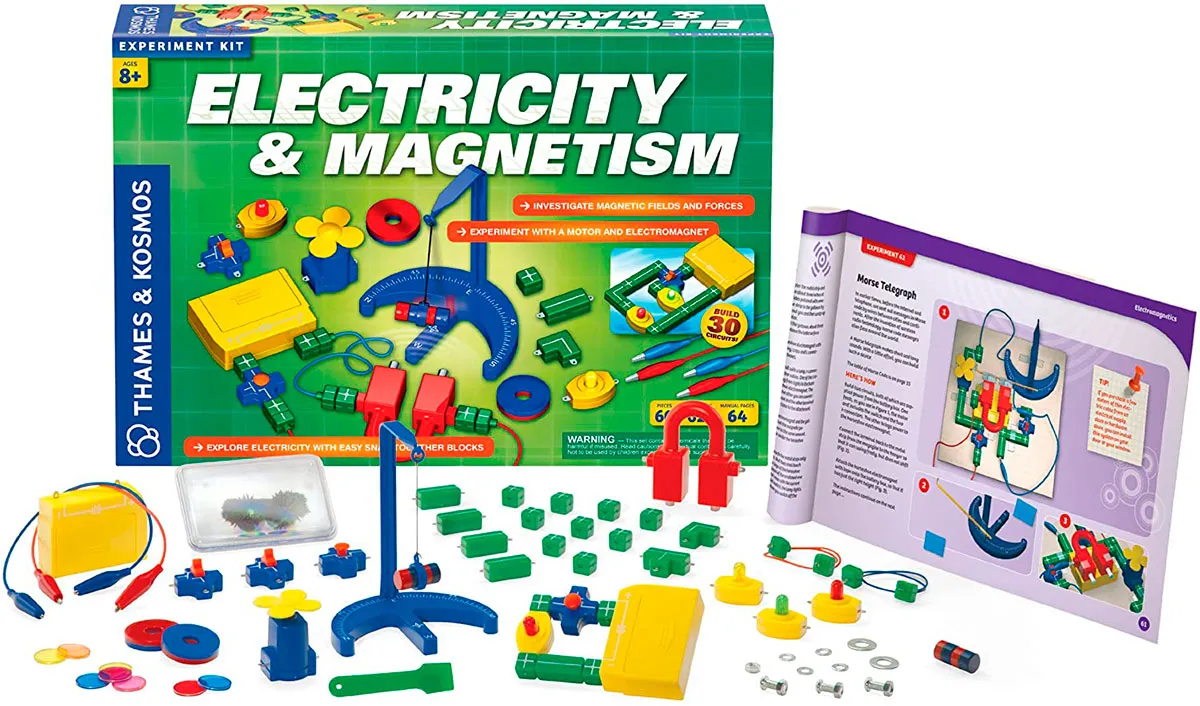
Your more technically minded kids might enjoy experimenting with electricity and magnetism with this science kit from Thames & Kosmos. Young engineers can conduct 62 different experiments and build 30 circuits, all described with diagrams in a 64-page manual.
Kids can start off building circuits that include simple components like switches, light bulbs and motors. Then, they can start to experiment with magnetism, learn how a compass works, create a magnetic pendulum, and even build an electromagnet.
John Adams Kitchen Chemistry Set (ages 8+)
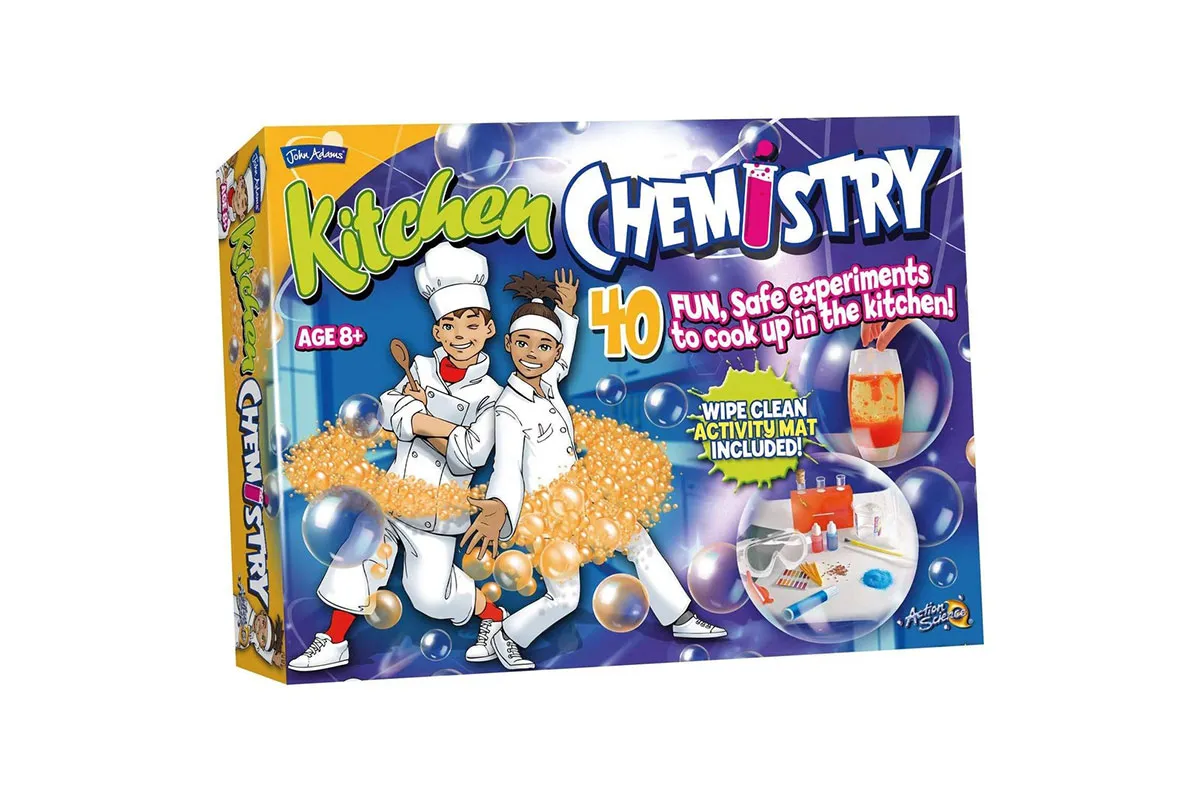
Though they might not realise it, the kitchen is the first place many kids will encounter chemistry. Every time you add baking powder to a cake batter, lemon juice to a marinade for meat or sugar and yeast to bread, you’re creating a chemical reaction that results in delicious food. So, the kitchen is a great place to introduce kids to basic scientific ideas.
The Kitchen Chemistry Set from John Adams provides all the equipment you’ll need to carry out 40 experiments, including test tubes, pH strips, a pipette and a measuring beaker. For extra safety, it also comes with goggles and a ‘Spot the hazards’ poster.
Throughout these experiments, young scientists can learn about acids and alkalis, enzymes and chemical reactions in a way designed to support the National Curriculum.